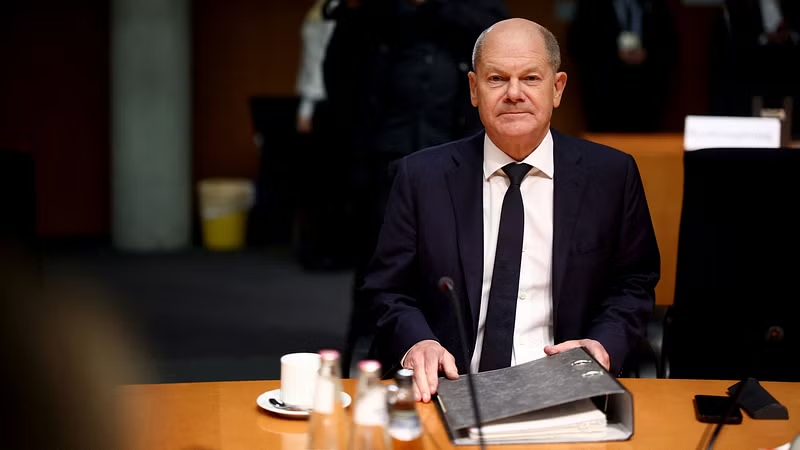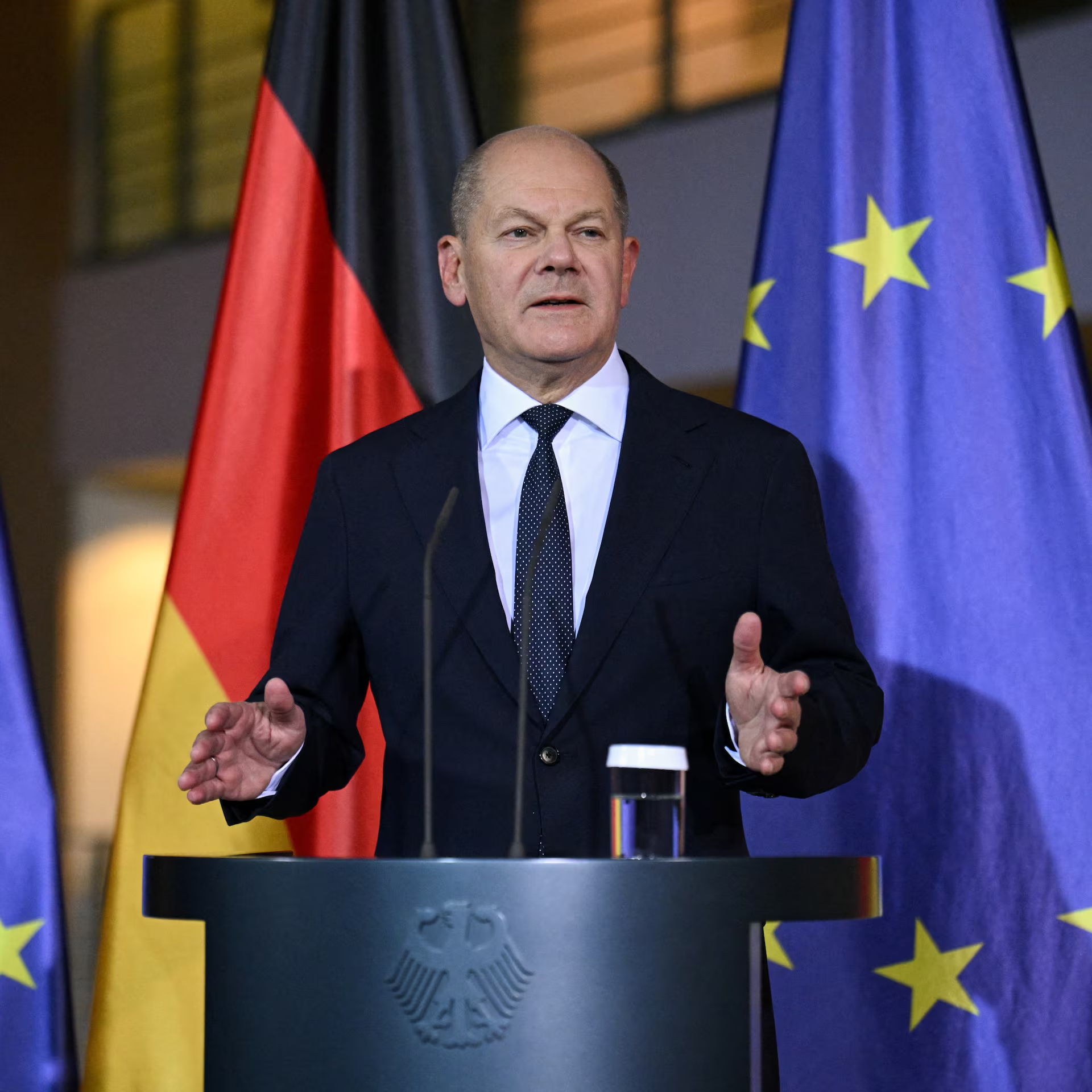German Chancellor Olaf Scholz has defended his decision to hold a phone call with Russian President Vladimir Putin, despite widespread criticism from both domestic and international quarters.
The hour-long conversation, the first direct communication between the two leaders in nearly two years, has sparked debate over its timing and implications, particularly as it coincides with Scholz’s challenging domestic political climate and mounting pressure on Europe’s response to the war in Ukraine.
Chancellor Scholz’s call with Putin took place against the backdrop of Germany’s political landscape heating up ahead of snap elections, where the chancellor is facing significant opposition from populist parties on both the left and right. These factions have been vocal in advocating for a resumption of diplomacy with Russia, a stance that contrasts with the prevailing approach of isolating the Kremlin.
Critics, including Ukrainian President Volodymyr Zelensky, have accused Scholz of undermining Western solidarity for political gain. The call has raised questions about the message it sends at a time when European nations and their allies are striving to maintain a unified front against Russian aggression.
READ ALSO: President Tinubu Confers Nigeria’s National Honour on Indian Prime Minister Narendra Modi
Speaking to reporters, Scholz justified the call as an opportunity to reaffirm Germany and Europe’s unwavering stance on Ukraine. “It was important to tell him [Putin] that he cannot count on support from Germany, Europe, and many others in the world waning,” Scholz said.

While the chancellor acknowledged that the conversation revealed no significant change in Putin’s perspective on the war, he maintained that direct communication remains essential. “The conversation was very detailed but contributed to a recognition that little has changed in the Russian President’s views of the war – and that’s not good news,” Scholz remarked.
Scholz’s call with Putin comes amid signs of increasing interaction between Western-aligned leaders and the Kremlin, even as the conflict in Ukraine grinds on with Russian forces making incremental gains in the eastern regions.
For instance, U.N. Secretary-General António Guterres recently attended a BRICS summit in Russia, and Russian Foreign Minister Sergei Lavrov is slated to participate in a security summit in Malta later this year. These developments reflect a subtle but growing shift in diplomatic engagement, prompting concerns about the implications for Europe’s strategy.
Adding another layer of complexity, Donald Trump’s return to the U.S. presidency has introduced uncertainty. Trump has pledged to bring about a swift end to the war and has appointed figures to his cabinet who are perceived as more favorable toward Moscow. This has raised alarms in Europe, with Scholz emphasizing the potential ramifications for transatlantic relations.
In defending his call, Scholz pointed to the need for Europe to remain a central player in any discussions about the war’s resolution. “In my view, it would not be a good idea if there were talks between the American and Russian presidents and the leader of an important European country was not also doing so,” Scholz argued.
READ ALSO: Russia Launches Devastating Airstrikes, Targeting Ukraine’s Power Grid
This stance reflects Germany’s effort to assert itself as a key mediator in the conflict while ensuring that Europe’s interests are represented in any negotiations.
The phone call has reignited the debate over the balance between maintaining a hardline stance against Russian aggression and exploring avenues for diplomacy. While Scholz’s critics see the call as premature or even counterproductive, the chancellor appears to be positioning himself as a pragmatic leader willing to engage with difficult conversations in pursuit of a long-term resolution.

As the war in Ukraine continues with no clear end in sight, Scholz’s outreach to Putin underscores the complexity of managing a multifaceted crisis. His call has highlighted the challenges of navigating domestic political pressures, upholding international solidarity, and addressing the broader geopolitical landscape.
Whether the call achieves its intended purpose remains uncertain, but it serves as a reminder that diplomacy, even in its most contentious form, remains a critical tool in addressing global conflicts. Scholz’s approach, though divisive, reflects an acknowledgment that dialogue, however limited, must remain part of the broader strategy to end the war and restore stability.
Discover more from Cine critique
Subscribe to get the latest posts sent to your email.

